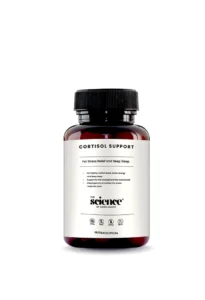If you are constantly forgetting what you were about to do, struggling to stay focused during work, or finding it difficult to recall simple words in conversations, you might be searching for how to deal with brain fog. The truth is, brain fog is not a permanent state, and with the right approach you can restore mental clarity.
Brain fog is not a disease but rather a symptom that signals something in your body or lifestyle needs attention. Millions of people today report experiencing this frustrating cloudiness, especially in the wake of stress, poor lifestyle habits, or post-COVID challenges. By understanding what causes brain fog and following both short-term and long-term solutions, you can regain energy, memory, and productivity.
This article will explore in depth what brain fog feels like, its common triggers, and most importantly, how to deal with brain fog naturally through sustainable changes.
What is Brain Fog?
Brain fog is best described as a state of mental fatigue and lack of clarity that makes it difficult to think straight. Unlike conditions such as dementia or Alzheimer’s, brain fog is usually temporary, but that does not mean it should be ignored. Learning how to deal with brain fog requires recognizing its signs and treating it as a message from your body.
Common symptoms of brain fog include:
- Forgetfulness and poor short-term memory
- Confusion and difficulty making decisions
- Lack of focus and productivity at work or studies
- Feeling mentally drained even after rest
The emotional toll can be significant. Many people feel frustrated, anxious, or even embarrassed by their inability to concentrate, which in turn makes the fog worse. This is why addressing both physical and emotional aspects is essential when exploring how to deal with brain fog.
Common Causes of Brain Fog
To truly know how to deal with brain fog, it is important to identify its triggers. Brain fog is often the result of a combination of lifestyle habits, health conditions, and environmental factors.
Lifestyle factors that contribute to brain fog:
- Inadequate or poor-quality sleep
- Chronic stress and burnout
- Poor nutrition, especially diets high in processed foods
- Dehydration
- Lack of physical activity
Medical-related factors include:
- Autoimmune conditions like lupus or multiple sclerosis
- Thyroid imbalances
- Diabetes and insulin resistance
- Depression and anxiety disorders
Other causes:
- Post-COVID brain fog is now widely recognized
- Certain medications that affect cognitive clarity
Recognizing which of these apply to you can make the journey of learning how to deal with brain fog more personal and effective.
How Brain Fog Feels
People often describe brain fog in vivid ways because it feels more like a cloud over the brain than a simple lack of attention. When talking about how to deal with brain fog, it helps to connect with these shared experiences:
- Like having too many tabs open on your computer at once, slowing everything down
- Like moving through thick molasses, where thoughts feel delayed and heavy
- Like trying to remember a word that is on the tip of your tongue but never arrivin
- Like being physically present but mentally absent
By acknowledging how it feels, you normalize the experience and take away some of the guilt that often comes with reduced productivity. This emotional understanding makes the process of learning how to deal with brain fog more compassionate and realistic.
How to Deal With Brain Fog: Practical Steps
Short-Term Relief
Sometimes you need instant clarity. While these quick strategies may not solve the root cause, they can help you get through the day:
- Drink a full glass of water to rehydrate
- Step away from screens and take mindful breaks
- Practice deep breathing or short meditation sessions
- Take a brisk walk, stretch, or splash cold water on your face
These actions reset the body and give the brain a much-needed pause. If you are wondering how to deal with brain fog in urgent situations, these steps are your go-to tools.
Long-Term Lifestyle Strategies
For lasting clarity, you need to address the root causes. Here’s how to deal with brain fog through sustainable lifestyle changes:
- Sleep optimization: Aim for 7 to 8 hours of restorative sleep, maintain a bedtime routine, and keep evenings screen-free
- Nutrition: Include omega-3 fatty acids, leafy greens, nuts, seeds, and plenty of water to nourish the brain
- Stress management: Journaling, therapy, yoga, and mindfulness reduce cortisol levels that often contribute to fogginess
- Decluttering: Keep your physical environment tidy and create simple systems to reduce mental overload
- Exercise: Movement increases blood flow and oxygen to the brain, improving focus and alertness
These habits not only reduce brain fog but also create overall better health. If you consistently practice them, you will notice how dealing with brain fog becomes second nature.
When to Seek Professional Help
While lifestyle changes are powerful, there are times when professional help is essential. Consider consulting a doctor or holistic practitioner if:
- Brain fog lasts for more than two to three weeks
- Symptoms interfere with work, relationships, or daily life
- You have additional symptoms linked to depression, anxiety, thyroid, or autoimmune conditions
Professional evaluation ensures you are not masking a deeper condition. Holistic programs, such as Smriti Kochar’s Ultra-Wellness Program, focus on finding the root cause of brain fog instead of simply treating the symptom. This approach is crucial if you want to know how to deal with brain fog at its deepest level.
Brain Fog and Indian Lifestyle
Urban lifestyles in India have unique factors that contribute to brain fog. Anyone looking for how to deal with brain fog in an Indian context should be mindful of:
- High stress from demanding jobs and traffic-filled commutes
- Irregular sleep cycles caused by late-night work or entertainment
- Heavy reliance on high-carbohydrate diets and sugary chai, which lead to blood sugar spikes
- Low hydration, especially in hot and humid climates
Addressing these cultural and lifestyle realities makes the advice on how to deal with brain fog more practical for Indian audiences.
Final Thoughts: You’re Not Alone
Brain fog can feel overwhelming, but it is a sign that your body and mind need support, not a permanent condition. By listening to your body, making simple changes, and seeking deeper help if needed, you can regain focus and clarity. Understanding how to deal with brain fog means combining short-term relief with long-term transformation. Small, consistent steps truly lead to lasting change.
Smriti Kochar’s Ultra-Wellness Program
If brain fog has been holding you back despite lifestyle adjustments, it may be time to explore root-cause healing. Smriti Kochar’s Ultra-Wellness Program helps uncover underlying issues such as gut imbalances, hormonal disruptions, and nutritional gaps. This personalized, natural approach is designed to restore clarity and vitality.
Ready to take the next step in your healing journey? Discover Smriti Kochar’s Ultra-Wellness Program and learn how to deal with brain fog from the inside out.
Product for Sharper Focus
Alongside lifestyle and holistic approaches, some people benefit from natural support supplements. One option is Sharp Brain and Focus, a product designed to boost memory, concentration, and mental alertness naturally.
Read Our Latest Blogs
Stomach Pain but No Period | Why Do I Have Lower Cramps but No Period | 10 Days Late for Period, No Symptoms | No Period after Abortion, Negative Pregnancy Test | Brain Fog Causes | How to Get Rid of Brain Fog | How to Cure Brain Fog | How to Clear Brain Fog | Supplements for Brain Fog
Frequently Asked Questions
Ans: Brain fog can last from a few hours to several weeks depending on the cause. If it persists beyond a few weeks, consult a professional to uncover underlying issues.
Ans: Yes. By optimizing sleep, eating a nutrient-rich diet, reducing stress, and staying hydrated, many people learn how to deal with brain fog naturally without medication.
Ans: Foods rich in omega-3s like salmon and walnuts, leafy greens such as spinach, and adequate hydration can help clear fog and restore clarity.
Ans: Not always. Short-term brain fog caused by stress or poor sleep is common. However, chronic fog could indicate deeper issues like thyroid imbalance, diabetes, or mental health concerns.
Ans: Even short bursts of physical activity improve circulation and oxygen flow, helping to clear mental cloudiness in the moment.
Ans: Yes. Dehydration is one of the most overlooked causes of mental fatigue. Drinking sufficient water is one of the simplest ways to start learning how to deal with brain fog.
Ans: Break tasks into smaller steps, schedule important tasks for peak energy times, and take short breaks every hour to refresh the brain.
Ans: Yes. Anxiety, depression, and chronic stress often worsen brain fog. Addressing mental health with therapy or holistic practices is an important step in learning how to deal with brain fog fully.





